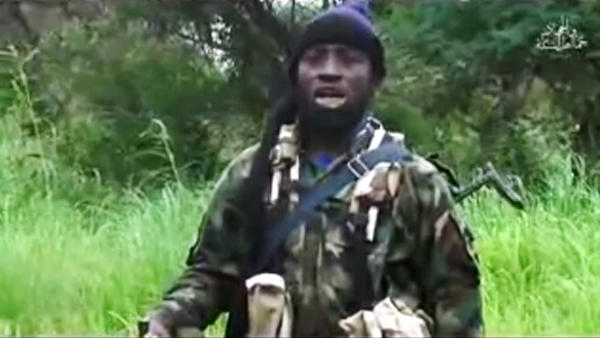The Nigerian army yesterday announced that the leader of Boko Haram Abubakar Shekau was seriously injured and a number of the extremist group’s leaders were killed in an air strike on their stronghold in north east Nigeria.
The announcement, which coincides with the US Secretary of State John Kerry’s visit to Sokoto, northern Nigeria, was met with suspicion by experts who pointed out that the Nigerian authorities had previously declared the death of Boko Haram’s leader. In a statement, the spokesman for the army Sani Usman said that Shekau “was fatally wounded on his shoulders” in a raid that was carried out on Friday on the Sambisa forest. The spokesman later told Agence France-Presse (AFP) “I said that he was injured, if there are any further developments, I will inform you of them”.
Sani added that three of the group’s leaders, Abubakar Mubi, Malam Nuhu and Malam Hamman, were killed and other members of the group were injured. Omar S Mahmood, a researcher at the Institute for Security Studies that is based in South Africa, said that “It is unclear if there is any other confirmation that Shekau himself has died of his wounds, and we should remember that Shekau has been claimed dead on a number of occasions before.” He continued by saying that “Nonetheless, the announcement comes at an interesting time given the recent leadership rift within the movement and if Shekau is incapacitated as a result that will be a major blow to his faction.”
Shekau previously pledged allegiance to ISIS in March 2015, and the terrorist organisation appointed the previous spokesperson for Boko Haram Abu Musab Al-Barnawi as the new head of the movement at the beginning of August.
A week later, Shekau released an audio message saying that he is still the leader of the movement and that he is “personally responsible” for fighting “against Nigeria and the entire world”.
